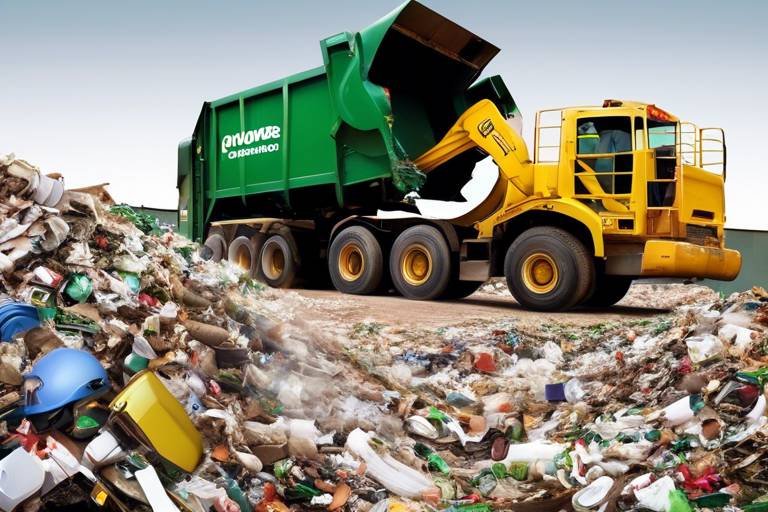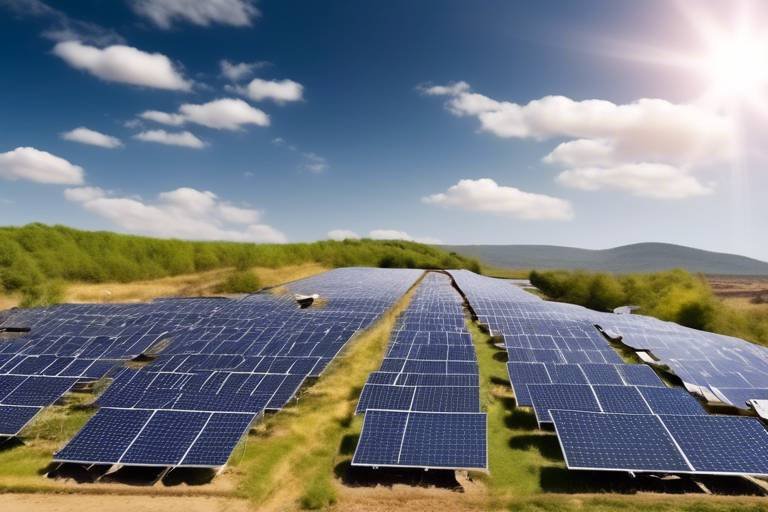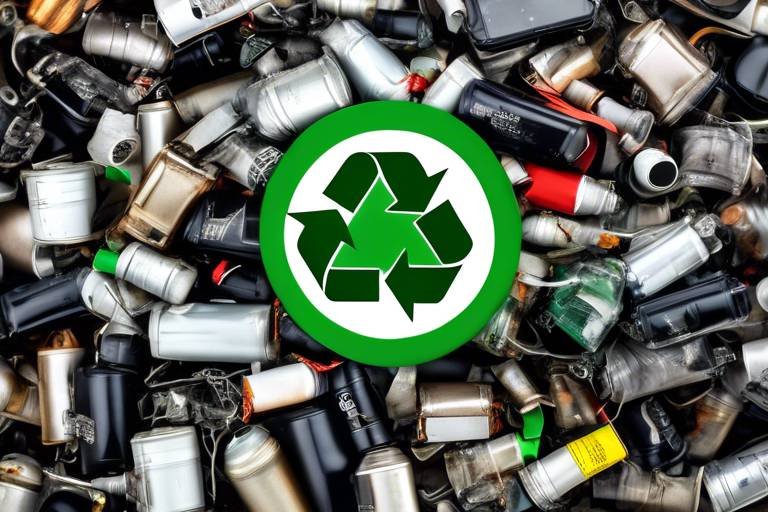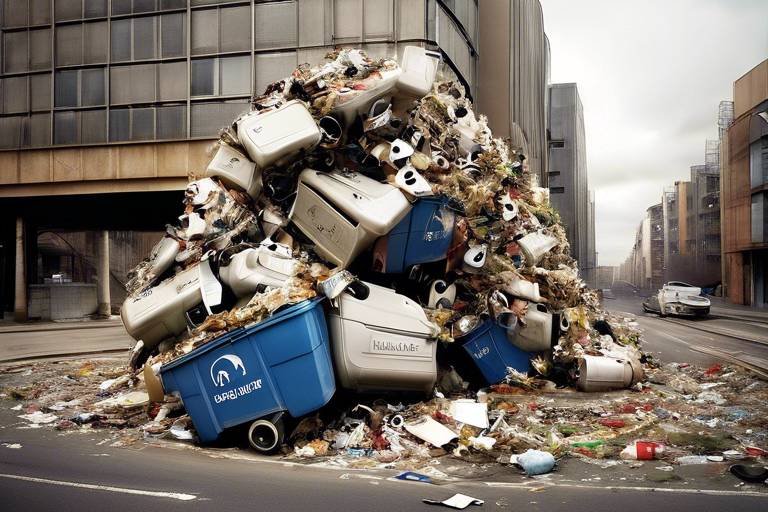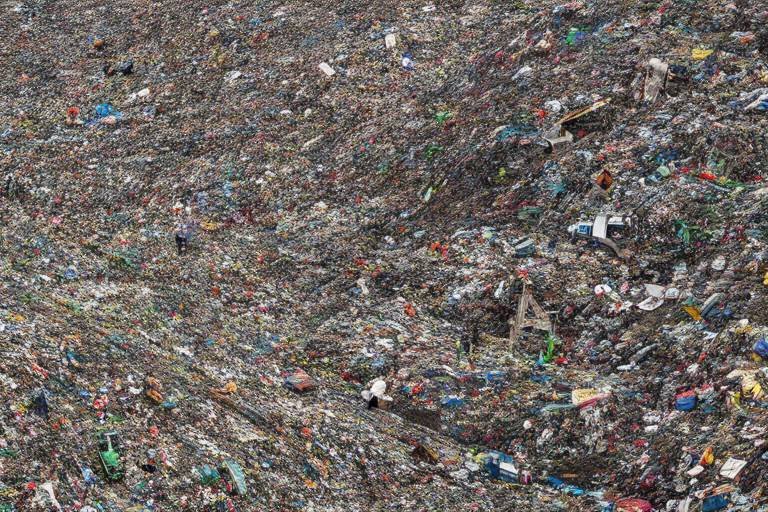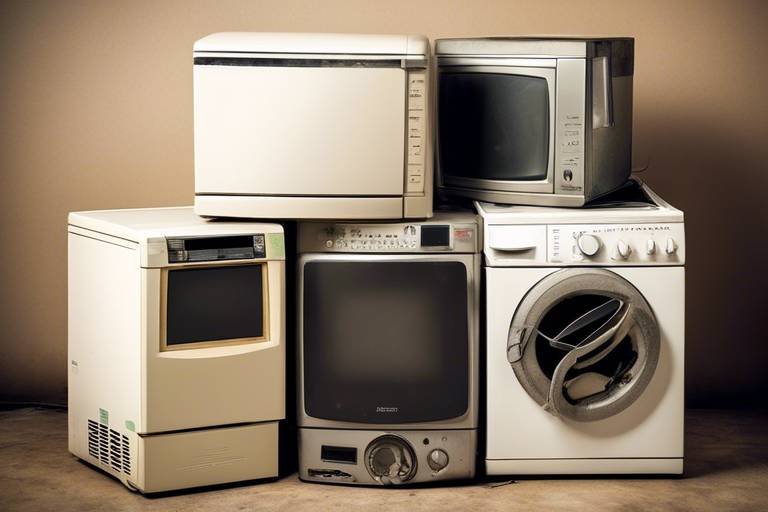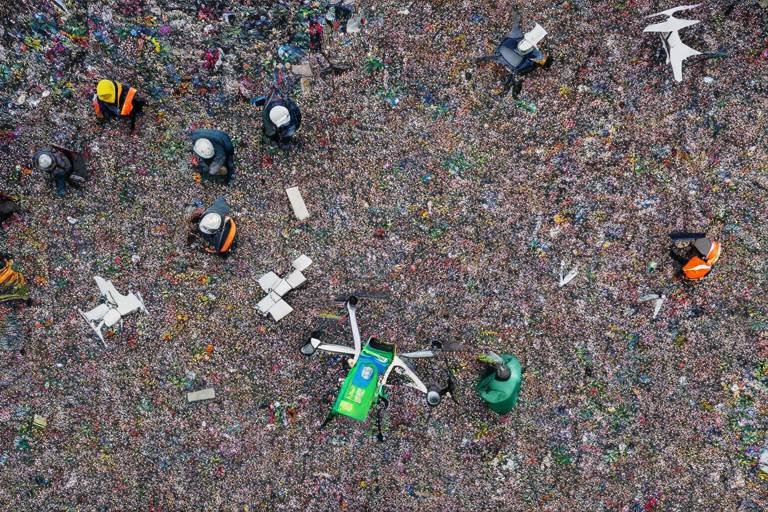Is Mobile Phone Recycling Worth the Effort?
In today's fast-paced world, mobile phones have become an essential part of our daily lives. We use them for communication, entertainment, and even work. However, as technology advances, many of us find ourselves upgrading to the latest models, leaving our old devices to gather dust. But have you ever stopped to think about what happens to those discarded phones? The truth is, mobile phone recycling is not just a responsible choice; it's a crucial step towards a sustainable future. In this article, we'll explore why recycling your mobile phone is worth the effort, focusing on its environmental impact, economic benefits, and practical steps you can take to contribute to this important cause.
Let's dive into the heart of the matter: e-waste. When we toss our old mobile phones into the trash, they often end up in landfills, where they can take hundreds of years to decompose. In the meantime, they leach harmful substances like lead, mercury, and cadmium into the soil and groundwater, posing serious health risks to both humans and wildlife. Imagine a beautiful forest slowly being poisoned by the very devices we rely on every day. By recycling our mobile phones, we can significantly reduce the amount of waste that ends up in landfills and minimize pollution. It's a win-win situation: we protect our planet and ensure that valuable materials are reused instead of wasted.
Now, let's talk about the money side of things. Recycling mobile phones isn't just good for the environment; it can also lead to significant economic advantages. Did you know that your old phone contains valuable materials like gold, silver, and palladium? By recycling these devices, we can recover these precious metals, reducing the need for mining and conserving our natural resources. This process not only saves money but also creates job opportunities in the recycling industry. As demand for recycling services increases, so does the need for skilled workers, leading to job growth and economic stability.
Consider this: a single mobile phone can contain up to 0.034 grams of gold. While that may not sound like much, when you multiply that by millions of discarded phones, it adds up to a staggering amount of recoverable materials. Recycling helps to extract these metals, which can then be reused to create new devices, reducing the environmental impact of mining. It's like finding hidden treasure in your junk drawer! By choosing to recycle, you're not just clearing out your clutter; you're actively participating in a circular economy that values sustainability.
Have you ever thought about the costs associated with traditional waste disposal methods? Landfills require ongoing maintenance and can be incredibly expensive for municipalities. In contrast, recycling mobile phones can be more cost-effective. By diverting e-waste from landfills, communities can save money on disposal fees and invest those funds into better recycling programs. It's a smart financial move that benefits everyone involved.
As the recycling industry grows, so does the need for jobs. Each mobile phone recycled can contribute to the creation of new positions in various sectors, from collection and transportation to processing and sales. This job growth not only provides employment opportunities but also strengthens local economies. Imagine a thriving community where people are employed in green jobs that contribute to a healthier planet. That's the power of mobile phone recycling!
One of the most compelling reasons to recycle your mobile phone is the impact it has on our carbon footprint. Manufacturing new devices generates significant carbon emissions, contributing to climate change. By recycling old phones, we can help lower these emissions. It's like taking a step back and saying, "I care about my planet." Every little action counts, and recycling is a simple yet effective way to make a difference.
So, how can you get involved in mobile phone recycling? The good news is that it's easier than you might think! There are several practical steps you can take to ensure your old devices are disposed of responsibly.
Many organizations accept donated phones for reuse or recycling. These programs often repurpose devices for individuals in need or recycle them responsibly. It's a fantastic way to give your old phone a second life while helping someone else. Plus, you can feel good knowing that you're making a positive impact!
Finding local recycling centers is essential for effective disposal. A quick search online can help you locate nearby facilities that specialize in mobile phone recycling. Many retailers also offer recycling programs, making it even more convenient to drop off your old devices. Remember, every phone recycled is a step towards a greener future.
Q: What happens to my phone when I recycle it?
A: When you recycle your phone, it typically goes through a process where valuable materials are extracted and reused, while harmful components are disposed of safely.
Q: Can I recycle my phone if it’s broken?
A: Yes! Even broken phones can be recycled. Many recycling programs accept devices in any condition.
Q: Is there a cost to recycle my phone?
A: Most recycling programs are free, but some may offer incentives or trade-in values for your device.
Q: How often should I recycle my mobile phone?
A: It's a good idea to recycle your phone whenever you upgrade or no longer need it. Regular recycling helps keep e-waste out of landfills.
In conclusion, mobile phone recycling is absolutely worth the effort. By taking the time to recycle your old devices, you contribute to a healthier planet, support the economy, and help create a sustainable future for generations to come. So, the next time you upgrade your phone, remember to recycle it responsibly!

The Environmental Impact of E-Waste
When we think about our gadgets, we often focus on their shiny screens and cutting-edge features, but have you ever stopped to consider what happens when they reach the end of their life? E-waste, particularly from mobile phones, is a growing concern that poses significant environmental challenges. Every year, millions of smartphones are discarded, and the impact on our planet is staggering. Did you know that only 20% of e-waste is recycled? This means that a massive amount of potentially harmful materials ends up in landfills, contributing to pollution and environmental degradation.
Mobile phones contain a cocktail of hazardous substances, including lead, mercury, and cadmium. When these devices are tossed in the trash, they can seep into the soil and groundwater, causing contamination that affects both human health and ecosystems. Imagine your favorite hiking trail or local park, now tainted by toxic chemicals leaching from discarded phones. It's a grim picture, but one that we can change through responsible recycling practices.
The impact of e-waste on landfills is another critical issue. As mobile phones and other electronic devices pile up, they take up valuable space and contribute to the ever-growing problem of landfill overflow. In fact, the United Nations estimates that global e-waste will reach 74 million metric tons by 2030. That's like filling up over 1,000 Olympic-sized swimming pools with discarded electronics!
But the environmental repercussions don't stop there. The production of mobile phones is resource-intensive, requiring energy and raw materials that contribute to greenhouse gas emissions. By recycling our old devices, we can significantly reduce our carbon footprint. For instance, recycling one million cell phones can save enough energy to power over 185 homes for an entire year.
So, what can we do about this? It starts with awareness and action. Here are a few steps we can take to combat the environmental impact of e-waste:
- Educate Yourself: Understand the implications of e-waste and the importance of recycling.
- Choose Wisely: When purchasing a new phone, consider brands that prioritize sustainability and offer recycling programs.
- Recycle Responsibly: Always recycle your old devices through certified e-waste recycling programs.
In conclusion, the environmental impact of e-waste is a pressing issue that requires our immediate attention. By taking steps to recycle our mobile phones responsibly, we can help mitigate pollution, conserve natural resources, and protect our planet for future generations. It's not just about getting rid of an old device; it's about making a choice that benefits the Earth. Let's make that choice together!

Economic Benefits of Recycling
Recycling mobile phones isn’t just a responsible choice for the environment; it also comes with a plethora of economic benefits that can’t be overlooked. Think about it: every time we recycle a phone, we’re not just saving the planet; we’re also tapping into a treasure trove of valuable materials and creating opportunities for growth in the job market. It’s a win-win situation! By understanding these benefits, we can all play a part in driving economic stability while doing our bit for Mother Earth.
One of the most significant advantages of recycling mobile phones is the recovery of valuable materials. Did you know that mobile phones are like little gold mines? They contain precious metals such as gold, silver, and palladium, which are used in their circuitry and components. When we recycle these devices, we can recover these metals and reduce the need for mining new materials. This not only conserves our natural resources but also minimizes the environmental degradation associated with mining activities.
| Material | Estimated Amount in a Mobile Phone | Environmental Impact of Mining |
|---|---|---|
| Gold | 0.034 grams | High energy consumption, habitat destruction |
| Silver | 0.3 grams | Water pollution, ecosystem disruption |
| Palladium | 0.015 grams | Significant carbon emissions |
In addition to recovering valuable materials, recycling mobile phones can also be cost-effective when compared to traditional waste disposal methods. Landfills are not only a burden on our environment but also an expensive solution for waste management. The costs associated with transporting and maintaining landfills can be staggering. By recycling, we can significantly reduce these financial burdens and redirect funds toward more sustainable practices. Imagine how much better it would be to invest in recycling programs rather than paying for landfill space that could be better utilized!
Moreover, the recycling sector is a burgeoning industry that generates numerous job opportunities. As the demand for mobile phone recycling increases, so does the need for skilled workers in various roles, from collection and sorting to processing and refurbishing devices. This growth in the recycling industry not only provides jobs but also fosters economic stability in communities. It’s like planting a seed that grows into a flourishing tree, providing shade and shelter for many.
In conclusion, the economic benefits of recycling mobile phones extend far beyond just saving the planet. By recovering valuable materials, reducing disposal costs, and creating job opportunities, we can contribute to a more sustainable future while also boosting our economy. So, the next time you consider tossing your old phone in the trash, remember the potential it holds for both the environment and the economy. Let’s make recycling a priority!
- What materials can be recovered from recycled mobile phones?
Mobile phones contain valuable metals such as gold, silver, palladium, and copper, which can be recovered during the recycling process.
- How does recycling mobile phones reduce environmental impact?
Recycling helps to conserve natural resources, reduce carbon emissions, and minimize pollution associated with mining and landfill waste.
- Are there any financial benefits to recycling my old phone?
Yes! Recycling can be more cost-effective than landfill disposal and can lead to job creation in the recycling industry.
- What should I do with my old mobile phone?
You can recycle it through donation programs, local recycling centers, or specialized e-waste recycling facilities.

Valuable Materials Recovery
When you think about your old mobile phone, what comes to mind? Maybe it’s that cracked screen or the outdated software. But have you ever considered the hidden treasures lurking inside? Mobile phones are not just communication devices; they are also mini treasure chests filled with valuable materials. In fact, a single smartphone can contain precious metals such as gold, silver, and palladium. These materials are not only expensive but are also essential for various technological applications.
Recycling these devices can significantly reduce the need for mining, which is often damaging to our environment. Mining operations can lead to deforestation, soil erosion, and water pollution, not to mention the carbon footprint associated with transporting these materials. By recycling your mobile phone, you are contributing to the recovery of these valuable resources, thus helping to conserve our planet's natural wealth.
Here’s a quick breakdown of the valuable materials you can recover from mobile phones:
| Material | Amount per Phone | Environmental Impact of Mining |
|---|---|---|
| Gold | 0.034 grams | High energy consumption and habitat destruction |
| Silver | 0.34 grams | Water pollution and soil degradation |
| Palladium | 0.015 grams | Air pollution and carbon emissions |
By recycling your old mobile phone, you not only help recover these valuable materials but also reduce the overall demand for new mining operations. This is a win-win situation for both the economy and the environment. Think of it as giving your old phone a second life while simultaneously helping the planet. Isn’t that a compelling reason to recycle?
Furthermore, the process of extracting these materials from recycled phones is far less harmful than traditional mining. Advanced recycling technologies allow for efficient recovery of metals with minimal environmental impact. So, every time you recycle your phone, you’re playing a part in a larger movement towards sustainability and responsible resource management.
In conclusion, mobile phone recycling is not just about getting rid of an old device; it’s about unlocking valuable materials that can be reused in new products. By participating in recycling programs, you are taking a significant step towards a more sustainable future. So, the next time you upgrade your phone, remember that your old device holds more than just memories; it holds the potential to make a positive impact on our world.
- What materials can be recovered from mobile phones? Mobile phones contain precious metals like gold, silver, and palladium, as well as other valuable components.
- How does recycling help the environment? Recycling reduces the need for mining, which can be harmful to ecosystems, and lowers carbon emissions associated with manufacturing new devices.
- Where can I recycle my old mobile phone? You can recycle your phone through donation programs, local recycling centers, or specialized e-waste recycling facilities.
- What happens to my phone after I recycle it? After recycling, the materials are extracted and processed for reuse in new products, reducing waste and conserving resources.

Cost-Effectiveness of Recycling
When it comes to evaluating the mobile phones, the numbers tell a compelling story. Recycling is not just an environmentally responsible choice; it can also be kinder to your wallet and the economy at large. Think about it: when you toss your old phone into the trash, you're not just losing the device; you're also throwing away valuable materials that could be repurposed. This includes precious metals like gold and silver, which are not only expensive but also finite resources that require extensive mining operations to extract.
Consider the following points that illustrate the financial benefits of recycling:
- Lower Waste Management Costs: Municipalities often face high costs associated with landfill management. By recycling mobile phones, cities can reduce the volume of waste that ends up in landfills, leading to significant savings in waste management expenses.
- Resource Recovery: The materials recovered from recycled phones can be reused in manufacturing new devices. This reduces the need for raw materials, which can be costly to extract and process.
- Reduced Environmental Cleanup Costs: E-waste can lead to pollution and environmental degradation, which can be expensive to remediate. By recycling phones, we can mitigate these costs and protect our planet.
Moreover, recycling can be more cost-effective than traditional waste disposal methods. A study conducted by the Environmental Protection Agency (EPA) found that recycling e-waste can be up to 30% cheaper than sending it to a landfill. This is especially relevant when you consider the long-term costs associated with environmental damage caused by e-waste.
To put it into perspective, let’s take a look at a simplified comparison:
| Method | Average Cost per Ton | Environmental Impact |
|---|---|---|
| Landfill Disposal | $50 - $100 | High pollution risk |
| Recycling | $35 - $70 | Lower pollution risk |
As you can see, recycling not only offers a more affordable option but also contributes to a healthier environment. By choosing to recycle, individuals can play a significant role in reducing the costs associated with waste management and environmental cleanup while promoting sustainability.
In conclusion, the mobile phones is clear. Not only does it save money, but it also helps conserve valuable resources and protect our planet. So, the next time you upgrade your device, consider recycling your old phone instead of tossing it away. It's a small step that can lead to big changes!

Job Creation in the Recycling Sector
The recycling sector is not just a solution to our mounting waste problem; it's also a vibrant engine for job creation. When we think about recycling mobile phones, we often focus on the environmental benefits, but the economic impact is equally significant. As more people become aware of the importance of recycling, the demand for recycling services grows, leading to the creation of numerous job opportunities.
In fact, the recycling industry has been shown to generate more jobs per ton of waste processed compared to traditional waste disposal methods. This is primarily because recycling requires more labor-intensive processes, from collection and sorting to processing and distribution. For instance, while a landfill might need a few workers to manage operations, a recycling facility can employ a diverse workforce, including technicians, sorters, and logistics personnel.
To illustrate the impact of recycling on job creation, consider the following statistics:
| Type of Job | Estimated Jobs Created per 10,000 Tons of Waste |
|---|---|
| Recycling | 1.17 |
| Landfill | 0.29 |
| Composting | 0.6 |
As the table shows, recycling not only conserves valuable resources but also creates significantly more jobs than simply dumping waste in landfills. This is a win-win situation that benefits both the economy and the environment. Additionally, as technology advances and recycling processes become more sophisticated, there will be a growing need for skilled workers in the recycling sector. This opens up opportunities for training programs and educational initiatives aimed at equipping individuals with the necessary skills to thrive in this evolving job market.
Moreover, local communities can benefit immensely from increased recycling activities. By establishing local recycling centers, municipalities can create jobs that support the local economy while promoting sustainable practices. This can lead to a ripple effect, where increased employment leads to higher disposable income, which in turn can boost local businesses. It's a cycle that not only enhances economic stability but also fosters a culture of sustainability.
In conclusion, the job creation potential in the recycling sector is vast and multifaceted. By encouraging mobile phone recycling, we can not only address the pressing issue of e-waste but also contribute to economic growth and job stability in our communities. So, the next time you consider tossing that old mobile phone in the trash, remember that recycling it could help create jobs and support a sustainable future.
- What types of jobs are available in the recycling sector? There are various roles including sorters, technicians, logistics personnel, and management positions within recycling facilities.
- How does recycling create more jobs compared to landfilling? Recycling requires more labor-intensive processes, which means more workers are needed for collection, sorting, and processing.
- Can recycling programs be implemented in small communities? Absolutely! Local governments can establish recycling programs that create jobs and promote sustainability.
- What skills are needed for jobs in the recycling industry? Skills can range from technical knowledge of recycling processes to logistics and management capabilities.

Reducing Carbon Footprint
When we talk about reducing our carbon footprint, it’s like trying to shrink a giant balloon that’s been inflated with all our wasteful habits. Every time we toss a mobile phone into the trash instead of recycling it, we’re adding more air into that balloon, contributing to the greenhouse gases that warm our planet. But here’s the good news: recycling our old mobile phones can significantly lessen that impact!
Think about it: the production of new mobile devices is an energy-intensive process. It often involves mining for raw materials, which releases a substantial amount of carbon dioxide into the atmosphere. By recycling our phones, we’re not only keeping them out of landfills but also reducing the need for these energy-consuming processes. It’s like taking a step back and saying, “Hey, let’s use what we already have instead of digging deeper into the Earth’s resources.”
According to environmental studies, recycling just one mobile phone can save an impressive amount of energy. Here’s how it breaks down:
| Action | Energy Saved (in kWh) |
|---|---|
| Recycling 1 Mobile Phone | Up to 30 kWh |
| Manufacturing 1 New Phone | Approximately 100 kWh |
As you can see, recycling is not just a drop in the bucket; it’s a substantial contribution towards a more sustainable future. Additionally, the energy saved from recycling can power homes and businesses, reducing overall energy demand and, in turn, cutting down carbon emissions.
Moreover, when we recycle, we’re also supporting a circular economy. This means that the materials from our old devices are reintroduced into the production cycle, minimizing waste and further reducing the carbon footprint associated with manufacturing new products. It’s like giving a second life to our gadgets, which is not only eco-friendly but also economically smart!
So, what can you do to help? Start by making a conscious choice to recycle your mobile phone instead of throwing it away. Many local recycling centers and programs exist to make this process easy and accessible. By doing so, you’re not just helping to reduce your own carbon footprint; you’re also inspiring others to follow suit. Together, we can deflate that balloon and create a healthier planet for future generations!
- Why should I recycle my mobile phone? Recycling helps reduce e-waste, conserves natural resources, and lowers carbon emissions.
- What happens to my phone when I recycle it? Your phone is dismantled, and valuable materials are extracted for reuse, while toxic components are disposed of safely.
- Can I donate my old phone instead of recycling it? Yes! Many organizations accept donations for reuse or recycling, ensuring your device is put to good use.
- How do I find a local recycling center? You can search online for local facilities or check with your community’s waste management services for guidance.

How to Recycle Your Mobile Phone
Recycling your mobile phone may sound like a daunting task, but it’s actually quite simple and incredibly rewarding. With the right steps, you can ensure that your old device doesn’t end up in a landfill, contributing to the growing problem of e-waste. So, how do you get started? First, you need to understand the various options available to you. There are multiple avenues for recycling, and each has its own benefits.
One of the easiest ways to recycle your mobile phone is through donation programs. Many organizations accept old phones, refurbish them, and either donate them to those in need or recycle them responsibly. This not only helps reduce waste but also allows someone else to benefit from your old device. For instance, charities like Cell Phones for Soldiers and HopeLine accept donations of used phones, which they then sell or recycle, with proceeds going to support various causes.
Another effective option is to locate your local recycling centers. These facilities specialize in the proper disposal and recycling of electronic waste, including mobile phones. To find a center near you, simply search online or check with your local government’s waste management department. Many cities have designated drop-off points where you can safely dispose of your devices. It’s a win-win situation; you’re decluttering your space while also contributing to a healthier planet!
Before you decide to recycle, remember to prepare your phone appropriately. This means backing up your data, removing any personal information, and, if possible, restoring it to factory settings. This step is crucial to protect your privacy and ensure that your personal data doesn’t fall into the wrong hands.
In addition to these options, many retailers and manufacturers also offer recycling programs. For instance, major companies like Apple and Samsung have trade-in programs that allow you to exchange your old phone for credit towards a new purchase. This not only promotes recycling but also encourages consumers to upgrade responsibly.
To summarize, here are some practical steps you can take to recycle your mobile phone:
- Research donation programs in your area.
- Locate a nearby recycling center.
- Prepare your phone by backing up data and resetting it.
- Consider trade-in options from retailers or manufacturers.
By following these steps, you can play a significant role in reducing e-waste and promoting a sustainable future. Remember, every small action counts, and recycling your mobile phone is a fantastic way to contribute positively to the environment.
Q: What happens to my phone after I recycle it?
A: After recycling, your phone is usually disassembled. Valuable materials like metals are extracted, while non-recyclable parts are disposed of in an environmentally friendly manner.
Q: Can I recycle my phone if it's broken?
A: Yes! Many recycling programs accept broken phones. They can often salvage parts or recycle the materials.
Q: Is there a cost associated with recycling my phone?
A: Most recycling programs are free, and some may even offer you cash or store credit for your old device.

Donation Programs
When it comes to recycling mobile phones, one of the most impactful ways to contribute is through . These initiatives not only promote sustainability but also provide a second life for your old devices. Imagine your outdated smartphone finding its way into the hands of someone who needs it—it's like giving a gift that keeps on giving! Many organizations accept donated phones, and they ensure that these devices are either reused or recycled responsibly, minimizing environmental harm.
For instance, programs like Cell Phones for Soldiers and HopeLine by Verizon accept donations of old mobile phones. They refurbish the devices or recycle them, using the funds generated to support veterans or provide resources for domestic violence survivors. This is a win-win situation: you declutter your space while making a positive impact on someone else's life.
Furthermore, donating your phone can also help bridge the digital divide. Many communities lack access to technology, and your old device could empower someone to connect with educational resources, job opportunities, or even family members. It's like planting a seed of change—your small action can lead to significant growth in someone else's life.
But how do you find these donation programs? It's easier than you think! Many local charities, schools, and community centers often have partnerships with organizations that facilitate mobile phone donations. You can also check online platforms that specialize in electronics recycling. Just make sure to erase all personal data from your phone before donating it, as a precaution to protect your privacy.
In conclusion, participating in donation programs is a simple yet effective way to recycle your mobile phone while contributing to a greater cause. Not only do you help the environment, but you also support individuals and communities in need. So, the next time you're ready to upgrade your device, consider donating your old phone instead of tossing it aside!
- What types of phones can I donate? Most programs accept a variety of mobile phones, including smartphones and older models. Check with the specific organization for their guidelines.
- Is my personal data safe when I donate my phone? Yes, but it's crucial to wipe all personal data from your device before donating. You can do this by performing a factory reset.
- Can I donate other electronics besides mobile phones? Many organizations accept a range of electronics. It's best to check with the donation program for their specific needs.
- Are there any costs associated with donating my phone? Generally, donating your phone is free. However, some programs may ask for a small shipping fee if you're mailing the device.

Local Recycling Centers
Finding a local recycling center for your mobile phone can seem daunting, but it’s easier than you might think. Many cities have dedicated facilities that specialize in e-waste recycling, ensuring that your old device is disposed of responsibly. Imagine walking into a place where your phone is not just thrown away, but carefully dismantled and its components reused. That’s the beauty of recycling! Not only does it keep harmful materials out of landfills, but it also contributes to a circular economy where resources are reused rather than wasted.
To locate a recycling center near you, consider using online resources or local government websites that often provide lists of certified e-waste recycling facilities. You can also check with major retailers that sometimes offer in-store recycling programs. For example, many electronics stores have drop-off bins for old phones, making it super convenient for you to recycle while you shop. It’s like killing two birds with one stone!
Here’s a simple table to help you understand what to look for when choosing a local recycling center:
| Criteria | Importance |
|---|---|
| Certification | Ensures the center follows proper recycling standards. |
| Accessibility | Easy to reach, making it convenient for drop-off. |
| Services Offered | Check if they accept a variety of devices, not just phones. |
| Community Programs | Some centers may offer educational programs on recycling. |
It’s also worth mentioning that some local recycling centers may host special events like e-waste collection days, where you can drop off your old electronics for free. These events are not only beneficial for the environment but can also create a sense of community as people come together to make a positive impact. So keep an eye out for announcements in your area!
Remember, recycling your mobile phone is a small action that can lead to significant environmental benefits. By choosing a local recycling center, you’re not just getting rid of an old device; you’re participating in a larger movement towards sustainability. And who knows? You might even inspire your friends and family to join in and make recycling a regular part of their lives!
Q: What types of mobile phones can I recycle?
A: Most recycling centers accept a wide range of mobile phones, including smartphones and older models. Just check with your local facility for specific guidelines.
Q: Is there a fee for recycling my phone?
A: Many local recycling centers offer free recycling services, but it's always best to confirm before you go.
Q: What happens to my phone after I recycle it?
A: Once recycled, your phone will be disassembled, and its components will be sorted. Valuable materials like metals and plastics are recovered and reused in new products.
Q: Can I recycle other electronics besides mobile phones?
A: Yes! Most recycling centers accept a variety of electronics, including tablets, laptops, and even chargers. Check with your local center for their full list of accepted items.
Frequently Asked Questions
- Why should I recycle my mobile phone?
Recycling your mobile phone is crucial for environmental protection. Old phones contribute to e-waste, which can harm our planet. By recycling, you help reduce landfill waste and pollution, and you also recover valuable materials like gold and silver!
- What happens to my phone when I recycle it?
When you recycle your phone, it goes through a process where it is dismantled and its parts are sorted. Precious metals and other materials are extracted and reused, minimizing the need for new resources and reducing the overall carbon footprint.
- Are there any financial benefits to recycling my phone?
Absolutely! Recycling can be cost-effective compared to traditional waste disposal. Plus, it helps create jobs in the recycling sector, contributing to local economies. By recycling, you’re not just helping the planet; you’re also supporting economic growth.
- How can I find a recycling center near me?
Finding a local recycling center is easier than you think! Just search online for “mobile phone recycling near me” or check with your local waste management authority. Many communities have dedicated facilities or partnerships with organizations for easy recycling.
- What should I do with my personal data before recycling?
Before recycling your phone, it’s essential to back up your data and perform a factory reset. This ensures that your personal information is wiped clean and protects your privacy. Think of it as giving your phone a fresh start!
- Can I donate my old phone instead of recycling it?
Yes! Donating your old phone is a fantastic option. Many organizations accept phones for reuse or recycling. This not only helps someone in need but also ensures that the device is repurposed responsibly, contributing to a sustainable future.





